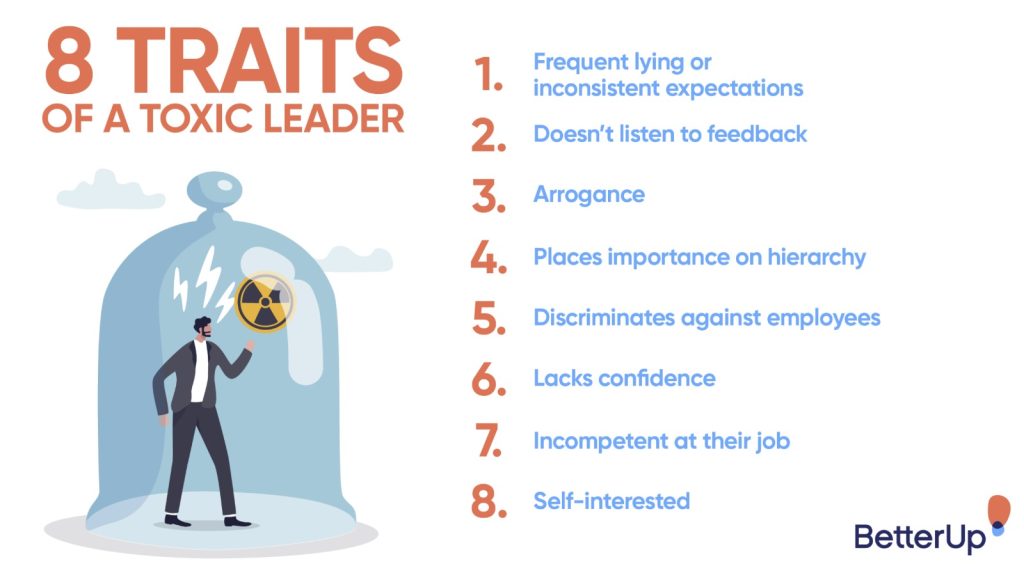Why are people acting so crazy these days?
Because crazy behavior is becoming the new normal. In other words, what was clearly insane ten years ago is normal today.

Why?
One of the most potent causes is what researchers call “toxic leadership.” We have an example of toxic leadership in the firing of the Speaker of the House of Representatives, Kevin McCarthy, on Tuesday October 3rd.
On the one hand, McCarthy had an extremely positive quality, persistence. McCarthy aimed to be Speaker of the House for over ten years and raised massive amounts of money for his fellow Republicans, money to build a base of loyalty for his aim of someday becoming speaker.
And when the vote to make McCarthy speaker finally came nine months ago, McCarthy pushed on through fifteen votes to win the speakership. a feat of persistence that has only been equaled fifteen times in American History.

On the other hand, Kevin McCarthy was not a role model you would want to hold up to your kids. He was a coward. He had no principles. When mobs at the White House on January sixth were streaming down the hallways and trying to break into the chamber where Congress, including McCarthy, was meeting, McCarthy called Donald Trump and told him angrily, “they’re trying to f**ing kill me.” McCarthy demanded that Trump get his mobs to stop.
Three weeks later, McCarthy flew down to Mar-a-Lago and threw himself at Donald Trump’s feet. In other words, McCarthy had no character, no spine, no principles.
And Matt Gaetz, the congressman who toppled McCarthy from power, another man who may qualify as a toxic leader, swears that Kevin McCarthy is a liar.
What’s more, both men were being manipulated by yet another toxic leader, a leader who wanted to shut down the government and create chaos, Donald Trump.
What does this have to do with insane behaviors like the 513 mass shootings we’ve had this year?
A leader is a role model. People imitate what he or she does. This is why until 2016 we talked about holding our children up to the model set by the president. It’s why we tell our kids the story of George Washington and the cherry tree. And of little George’s statement to his father that, “I cannot tell a lie.”

We have two major presidential role models in American culture right now–Donald Trump and Joe Biden. Which one is toxic depends on your point of view.
Republicans will tell you that Joe Biden is senile and doddering, barely capable of remembering his name, that he is a puppet in the hands of shadowy figures, and that he is the leader of the Biden Crime Family.
On the other hand, Democrats will tell you that Donald Trump is a liar who the Washington Post says spouted over 30,000 outright fabrications while he was in the Oval Office and God-knows how many more lies since he’s left.
What’s more, Democrats point to a series of qualities that make Trump the classic toxic leader. They say he bullies his minions, his allies, and his enemies. They say he has an outrageous temper and unleashes it on those who don’t flatter him. They say his temper is so overpowering that Mr. Trump has managed to make nearly every Republican Congressman and woman fear him.

And they say Trump encourages violence.
During the last few days, Trump has been attending his fraud case in a Manhattan courtroom and has been doing something forbidden by legal etiquette. He has been insulting the judge.
What’s worse, Trump, some say, runs the ultimate political crime family, a family that Forbes Magazine says raked in 2.4 billion dollars while Trump was in office.
Toxic behavior has a habit of trickling down. If the head of your society bullies others, you are more likely to bully those below you. If the head of your society unleashes his temper on others, you are more likely to unleash your temper on others, too. And if the head of your society is corrupt and skims money off the top for himself, you are more likely to become corrupt, too.
That’s why this form of leadership is called toxic. And that’s why people are acting in ways we used to view as insane.

References:
In four years, President Trump made 30,573 false or misleading claims
https://www.washingtonpost.com/graphics/politics/trump-claims-database/
https://www.cnn.com/2023/07/12/politics/kevin-mccarthy-fundraising-numbers/index.html
https://www.axios.com/2021/05/13/liz-cheney-kevin-mccarthy-trump
de Waal, F. B. M. (1982). Chimpanzee politics: Power and sex among apes. Baltimore: The Johns Hopkins University Press.
Kenneth Matos, Ph.D., Toxic Leadership: Detoxifying your Culture and Encouraging More Mindful Leadership, https://ripslawlibrarian.files.wordpress.com/2020/01/bdafe-toxic_leadership_detoxifying_15be.pdf
D. Sull, C. Sull, and B. Zweig, “Toxic Culture Is Driving the Great Resignation,” MIT Sloan Management Review, Jan. 11, 2022, https://sloanreview.mit.edu.
Donald Sull, Charles Sull, William Cipolli, and Caio Brighenti, Why Every Leader Needs to Worry About Toxic Culture, MIT Sloan Management Review, March 16, 2022https://sloanreview.mit.edu/article/why-every-leader-needs-to-worry-about-toxic-culture/
Chaplain (Col.) Kenneth R. Williams, PhD, U.S. Army, The Cost of Tolerating Toxic Behaviors in the Department of Defense Workplace, Military Review, Army University Press, July-August 2019, https://www.armyupress.army.mil/Journals/Military-Review/English-Edition-Archives/July-August-2019/Williams-Toxic-Behavior/
George E. Reed, “Toxic Leadership,” Military Review 84, no. 4 (July-August 2004): 67–71
George E. Reed and R. Craig Bullis, “The Impact of Destructive Leadership on Senior Military Officers and Civilian Employees,” Armed Forces & Society 36, no. 1 (1 October 2009): 5–18,
https://doi.org/10.1177/0095327X09334994;
George E. Reed and Richard A. Olsen, “Toxic Leadership: Part Deux,” Military Review 90, no. 6 (November-December 2010): 58–64, https://www.armyupress.army.mil/Portals/7/military-review/Archives/English/MilitaryReview_20101231_art011.pdf
Kenneth R. Williams, “Toxic Leadership in Defense and Federal Workplaces: Sabotaging the Mission and Innovation,” International Journal of Public Leadership 14, no. 3 (July 2018): 179–98, https://doi.org/10.1108/IJPL-04-2018-0023.
Mitchell Kusy and Elizabeth Holloway, Toxic Workplace: Managing Toxic Personalities and Their Systems of Power (San Francisco: John Wiley & Sons, 2009), Kindle.
https://en.wikipedia.org/wiki/Kevin_McCarthy
______
Howard Bloom of the Howard Bloom Institute has been called the Einstein, Newton, and Freud of the 21st century by Britain’s Channel 4 TV. One of his seven books–Global Brain—was the subject of a symposium thrown by the Office of the Secretary of Defense including representatives from the State Department, the Energy Department, DARPA, IBM, and MIT. His work has been published in The Washington Post, The Wall Street Journal, Wired, Psychology Today, and the Scientific American. He does news commentary at 1:06 am Eastern Time every Wednesday night on 545 radio stations on Coast to Coast AM. For more, see http://howardbloom.institute.
